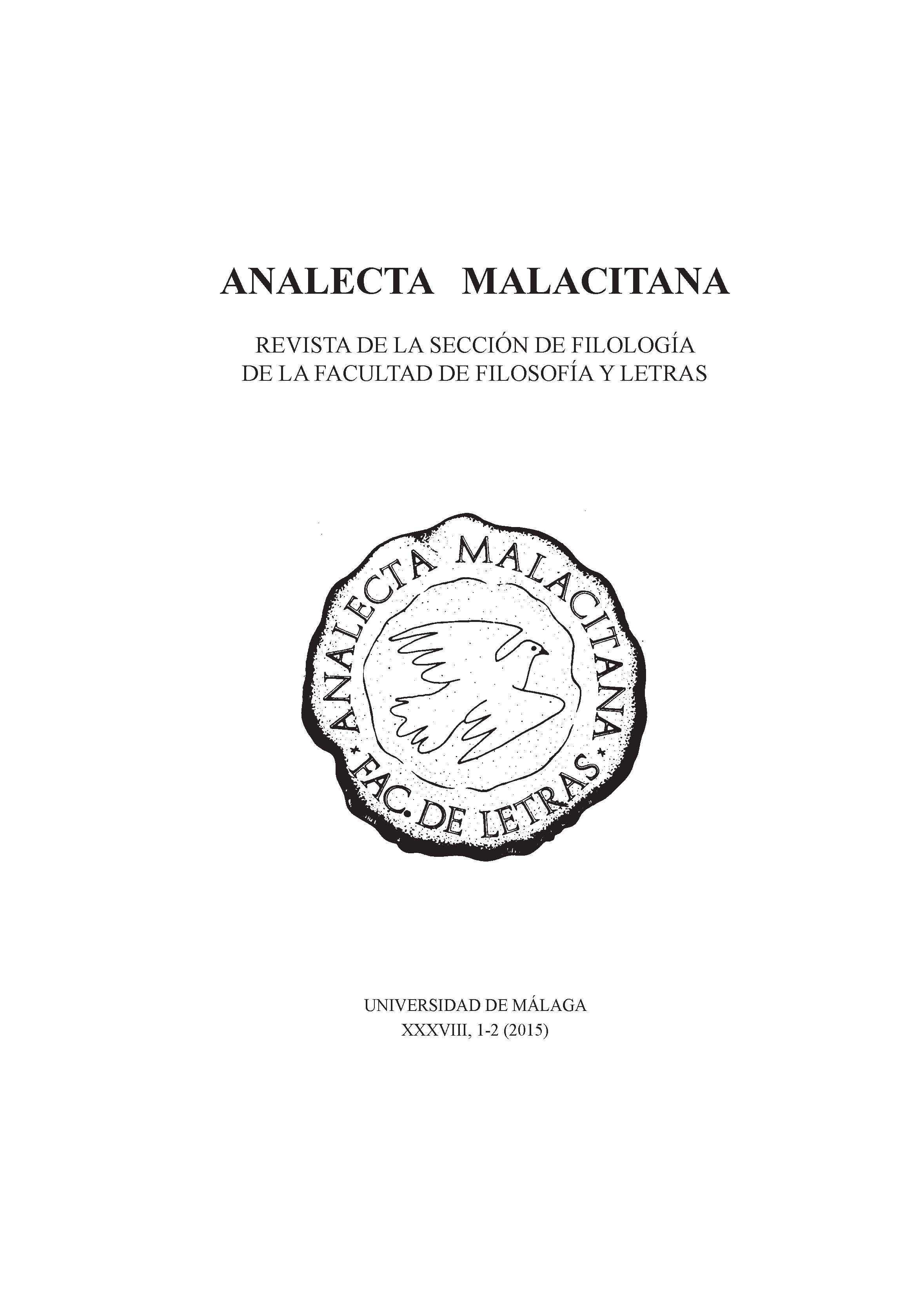Hacia el traductor de La zucca del doni en Spañol
DOI:
https://doi.org/10.24310/analecta.v38i1.4347Abstract
RESUMEN: La Zucca del Doni en Spañol (1551) se publicó tan solo cuatro meses después de la princeps de la Zucca doniana. El traductor es anónimo, pero la calidad del texto traducido, algunas peculiaridades suyas y la fuerte personalidad que el traductor deja entrever nos han inducido a intentar un acercamiento a esta ? gura para dibujar su per? l. Con este propósito investigamos tanto unos datos externos como otros internos al texto, de los cuales emerge una ? gura de hombre culto y sumamente ortodoxo en cuestiones religiosas.
ABSTRACT: The Spanish translation of A. F. Doni’Zucca (1551) was published just four months after the Italian editio princeps by the same printer; the translator remained anonymous, in spite of the fact that he shows a strong personality, emerging from the pages of his dedication and from the translation itself. It is our pourpose to approach his portrait, following the traces that he left in is work, but also collecting some extra-textual data. It will emerge the ? gure of a cultivated person, with a deep knowledge of the Holy Scripture and a strong sense of religion.
Downloads
Metrics
Downloads
Published
How to Cite
Issue
Section
License
In the Analecta Malacitana Journal we are clearly committed to a policy of open access to scientific knowledge (See the Berlin Declaration).
Those authors who have publications with this journal accept the following terms:
This journal provides immediate free access to its content on the principle of making research freely available to the public. All content published on Margins is subject to the Creative Commons Attribution-No Derivatives 4.0 International license.
It is the responsibility of the authors to obtain the necessary permissions of the images that are subject to copyright.
Authors whose contributions are accepted for publication in this journal will retain the non-exclusive right to use their contributions for academic, research, and educational purposes, including self-archiving or deposit in open access repositories of any kind.
The electronic edition of this magazine is edited by the Editorial of the University of Malaga (UmaEditorial), being necessary to cite the source in any partial or total reproduction.
The authors may adopt other non-exclusive license agreements for the distribution of the version of the published work (for example: deposit it in an institutional telematic archive or publish it in a monographic volume) provided that the initial publication in this magazine.
Authors are allowed and recommended to disseminate their work through the Internet (for example: in institutional telematic archives or on their web page) before and during the submission process, which can produce interesting exchanges and increase citations to the published work. (See The effect of open access.)





25.png)
